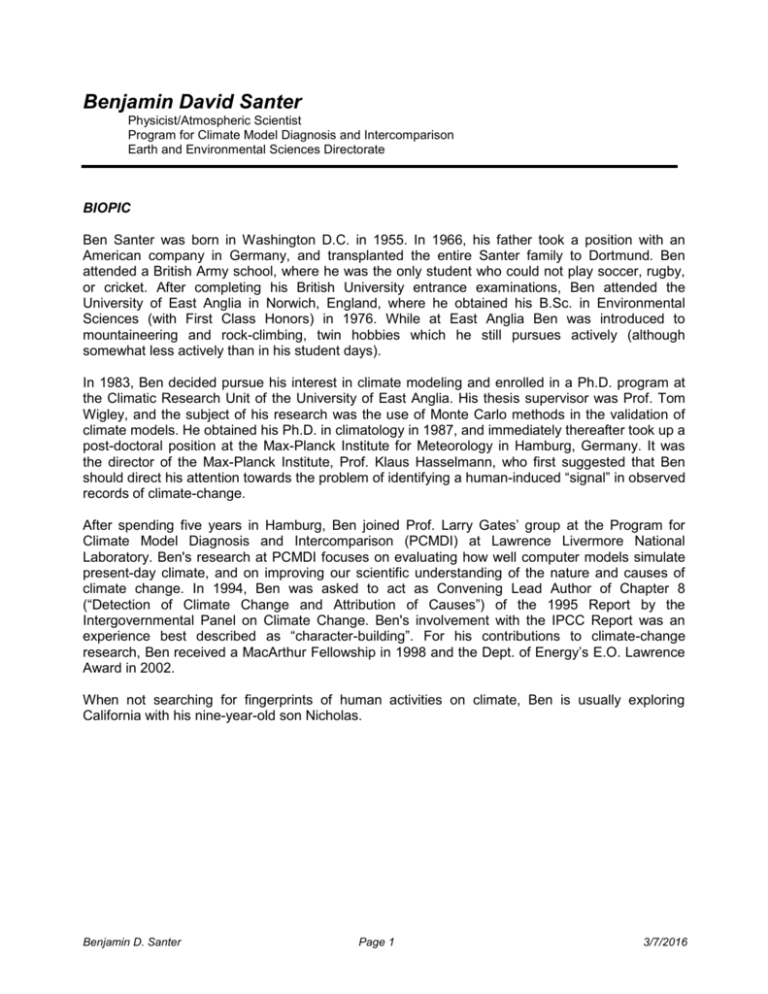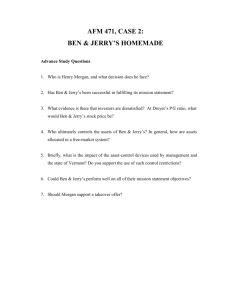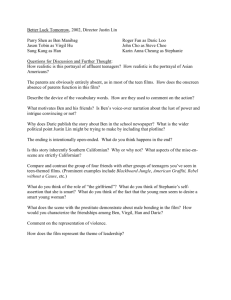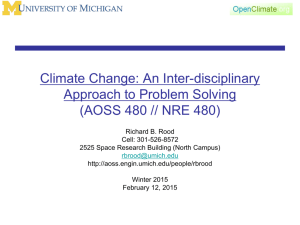Benjamin David Santer
advertisement

Benjamin David Santer Physicist/Atmospheric Scientist Program for Climate Model Diagnosis and Intercomparison Earth and Environmental Sciences Directorate BIOPIC Ben Santer was born in Washington D.C. in 1955. In 1966, his father took a position with an American company in Germany, and transplanted the entire Santer family to Dortmund. Ben attended a British Army school, where he was the only student who could not play soccer, rugby, or cricket. After completing his British University entrance examinations, Ben attended the University of East Anglia in Norwich, England, where he obtained his B.Sc. in Environmental Sciences (with First Class Honors) in 1976. While at East Anglia Ben was introduced to mountaineering and rock-climbing, twin hobbies which he still pursues actively (although somewhat less actively than in his student days). In 1983, Ben decided pursue his interest in climate modeling and enrolled in a Ph.D. program at the Climatic Research Unit of the University of East Anglia. His thesis supervisor was Prof. Tom Wigley, and the subject of his research was the use of Monte Carlo methods in the validation of climate models. He obtained his Ph.D. in climatology in 1987, and immediately thereafter took up a post-doctoral position at the Max-Planck Institute for Meteorology in Hamburg, Germany. It was the director of the Max-Planck Institute, Prof. Klaus Hasselmann, who first suggested that Ben should direct his attention towards the problem of identifying a human-induced “signal” in observed records of climate-change. After spending five years in Hamburg, Ben joined Prof. Larry Gates’ group at the Program for Climate Model Diagnosis and Intercomparison (PCMDI) at Lawrence Livermore National Laboratory. Ben's research at PCMDI focuses on evaluating how well computer models simulate present-day climate, and on improving our scientific understanding of the nature and causes of climate change. In 1994, Ben was asked to act as Convening Lead Author of Chapter 8 (“Detection of Climate Change and Attribution of Causes”) of the 1995 Report by the Intergovernmental Panel on Climate Change. Ben's involvement with the IPCC Report was an experience best described as “character-building”. For his contributions to climate-change research, Ben received a MacArthur Fellowship in 1998 and the Dept. of Energy’s E.O. Lawrence Award in 2002. When not searching for fingerprints of human activities on climate, Ben is usually exploring California with his nine-year-old son Nicholas. Benjamin D. Santer Page 1 3/7/2016









